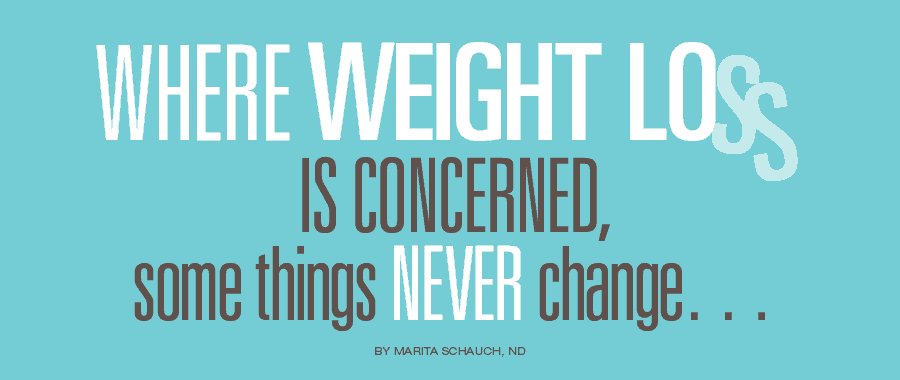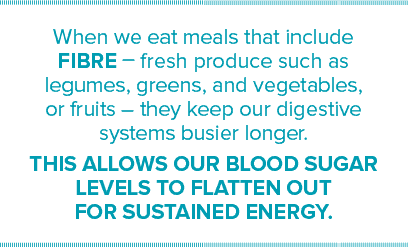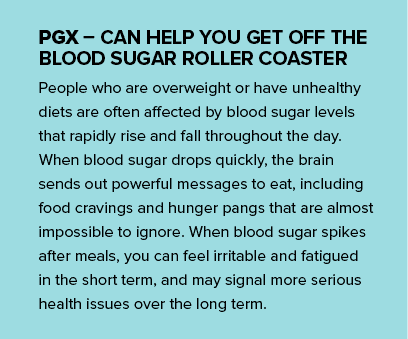
You may be thinking, “What?! It seems like there’s new advice every couple of months,
and it’s usually the opposite of the advice we were getting a year ago!”
Well, you’re not wrong; dietary bogeymen do come and go. First it was “don’t eat fat,”
then it was “healthy fats are good for you!” Once upon a time eggs were forbidden and
cholesterol had a very bad reputation. Now research shows a reasonable amount is
necessary to keep the body’s machinery running properly. I’m sure you get the picture.
Yet I stand by my title. Some things never change. What remains true, not just over years but decades, is that diets don’t work.
In study after study, the proof remains that all, but 5% of “successful” dieters will regain the weight they lost, and then put on more pounds, sometimes quite a few more pounds! Over time the evidence has also grown stronger. Increasing or reducing certain food content (protein, carbs, or fats) to encourage weight loss results in nutrient imbalances which can affect overall health. And while healthy eating – mostly plants – influences weight loss, we also know that the stress and sense of deprivation that comes from strict calorie-counting can work against our weight loss efforts, because our bodies can respond by slowing down our metabolism.
Our beliefs about dieting are completely topsy-turvy. This is one of the things I’ve become certain of in my clinical practice experience, while working with many different clients, whose goals include seeking to attain a healthier weight. We think we need to lose weight to get healthy, when actually, all the science to date shows we need to get healthy to lose weight. Dieting has no role to play in the latter scenario – which is good – because, as I’ve said, diets don’t work.
In my clinical practice at Tall Tree Integrated Health Centre in Victoria, BC, we have developed a successful weight loss program that focuses on healthy eating, stress reduction, and exercise: a program that we tailor to each individual patient.

NOW, I’M NOT SAYING THAT IT’S A SNAP TO GET HEALTHY TO LOSE WEIGHT. Everything I talked about in the previous paragraph requires change, and change doesn’t always come easily. Maybe you’re a constant snacker. Maybe you have a tendency to skip breakfast and then load up on quick-energy carbs that have you looking for another energy boost within hours. Or, maybe you know that you eat too late at night and are getting too many “empty” calories from sodas, wine, or beer.
It’s my experience that all of these hurdles have a common biochemical problem in need of correction: erratic, zooming and-plummeting blood sugar levels. While addressing this one issue will not assure any of us of success as we try to get healthy to lose weight, I’ve found it to be the most significant factor, definitely the one to address first, last, and always.
Remember that blood sugar rises when we eat sugar, and carbohydrates (dietary starches) are sugars. They’re great for quick energy because they reach the blood fast. It would be ideal if they provided that energy on demand and slowly tapered off – but they don’t – blood sugar levels tend to drop precipitously. We really feel it when this happens as we become lethargic, grumpy, anxious, and ready for our next quick fix. The next quick fix, unfortunately, is likely to be a snack that isn’t healthy and therefore won’t assist our efforts to lose weight, because unhealthy, high-fat and high-carb snacks tend to be what’s most available to grab when our blood sugar needs fast support.
The best way to smooth out the ups and downs of the blood sugar roller coaster is (no surprise here) not to get on it in the first place! The key to staying off that roller coaster? Putting fewer fast-burning carbohydrates in our mouths and substituting denser, more fibre-rich foods and proteins that burn slower, and take longer to leave the blood stream. In a word, we want more fibre. When we eat meals that include fibre – fresh produce such as legumes, greens, and vegetables, or fruits – they keep our digestive systems busier longer. This allows our blood sugar levels to flatten out for sustained energy. Best of all, when we succeed in stabilizing our blood sugar levels, it becomes easier to address any bad habits we may have with regard to cravings, snacking, eating late, or filling up with liquid calories. Stable energy supplies may also make it easier to adopt an enjoyable exercise habit.

And of course, there are times when we simply can’t eat balanced meals, or ensure ready access to fresh fruits and vegetables, or have on hand the protein-rich snacks that fight afternoon or evening cravings. Or maybe we need just a little extra help! I have the answer. It’s called PGX®. PGX is a novel complex of natural plant fibres with a higher viscosity than any other known fibres. When taken before or with meals, PGX fills the stomach over a 30-minute (or longer) timeframe. This process creates a feeling of fullness (satiety) by absorbing water in the stomach while slowing digestion. This promotes healthy blood sugar levels thereby curbing the body’s hunger cravings throughout the day.
How does PGX work? PGX reduces appetite and promotes a feeling of fullness. Unlike other supplements which promise “a magical change in metabolism”, “fat that melts away”, or “weight loss without any effort required”, PGX is backed by published, double-blind research that demonstrate PGX’s effectiveness to help you feel full longer and hungry less often. Using PGX before a meal will help you eat reduced portions and make healthy changes to your diet and lifestyle. Research shows that PGX taken before or with meals can help you achieve and maintain a healthy weight for life.
So, next time the steady flow of nutritional information and misinformation begins to frustrate you, remember: some things never change! Diets don’t work – so there’s no need to pay attention to the latest “miracle diet plan” they’re touting in the media.
Remind yourself that you need to get healthy to lose weight, instead of trying (and likely failing) to do the opposite. The people who join the elite 5% of weight-loss sustainers, those who manage to lose weight and keep it off long term, do it the right way. They eat sensibly from a variety of foods, ensure consumption of all essential nutrients, and they support healthy blood sugar levels with the right foods or supplements such as PGX.
Anybody who tells you there’s another, more successful approach to weight loss is trying to sell you something you don’t need.

CONSIDER WHAT THIS ALTERNATIVE WAY OF THINKING ABOUT WEIGHT LOSS REALLY MEANS.




You’re not cutting things out of your menus, though you may be cutting back or rebalancing the mix of foods on your plate. Instead of creating a “no” list of what you’ll avoid, you’re SEEKING OUT NEW FOODS, more plant-based foods and proteins, or foods you haven’t paid enough attention to, simply to enhance the variety of your menus and include more nutrients.
You’re also making room in your life for MORE EXERCISE, the joyful, individualized kind that becomes a delight instead of drudgery.
You’re not cutting things out of your menus, though you may be cutting back or rebalancing the mix of foods on your plate.
Instead of creating a “no” list of what you’ll avoid, you’re SEEKING OUT NEW FOODS, more plant-based foods and proteins, or foods you haven’t paid enough attention to, simply to enhance the variety of your menus and include more nutrients. You’re also making room in your life for MORE EXERCISE, the joyful, individualized kind that becomes a delight instead of drudgery.
And, all along the way, you’re ADJUSTING YOUR ATTITUDE. No longer are you waiting for your supposedly suboptimal body to shape up and earn your approval. You’re loving that body, pampering it, by providing
it with everything it needs for peak performance.
THE RESULT?
SLOW, HEALTHY WEIGHT LOSS that is sustainable – the kind that doesn’t boomerang into regaining everything you lost and more.


















